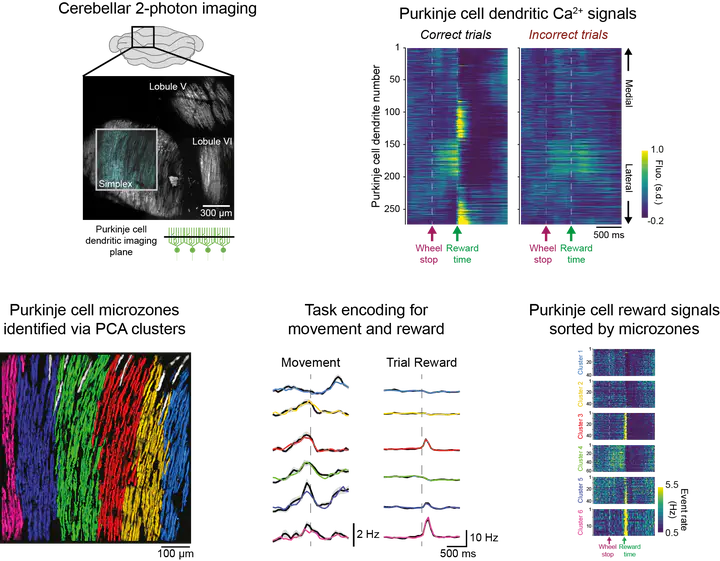Predictive and reactive reward signals conveyed by climbing fiber inputs to cerebellar Purkinje cells

Abstract
There is increasing evidence for a cerebellar contribution to cognitive processing, but the specific input pathways conveying this information remain unclear. We probed the role of climbing fiber inputs to Purkinje cells in generating and evaluating predictions about associations between motor actions, sensory stimuli and reward. We trained mice to perform a visuomotor integration task to receive a reward and interleaved cued and random rewards between task trials. Using two-photon calcium imaging and Neuropixels probe recordings of Purkinje cell activity, we show that climbing fibers signal reward expectation, delivery and omission. These signals map onto cerebellar microzones, with reward delivery activating some microzones and suppressing others, and with reward omission activating both reward-activated and reward-suppressed microzones. Moreover, responses to predictable rewards are progressively suppressed during learning. Our findings elucidate a specific input pathway for cerebellar contributions to reward signaling and provide a mechanistic link between cerebellar activity and the creation and evaluation of predictions.